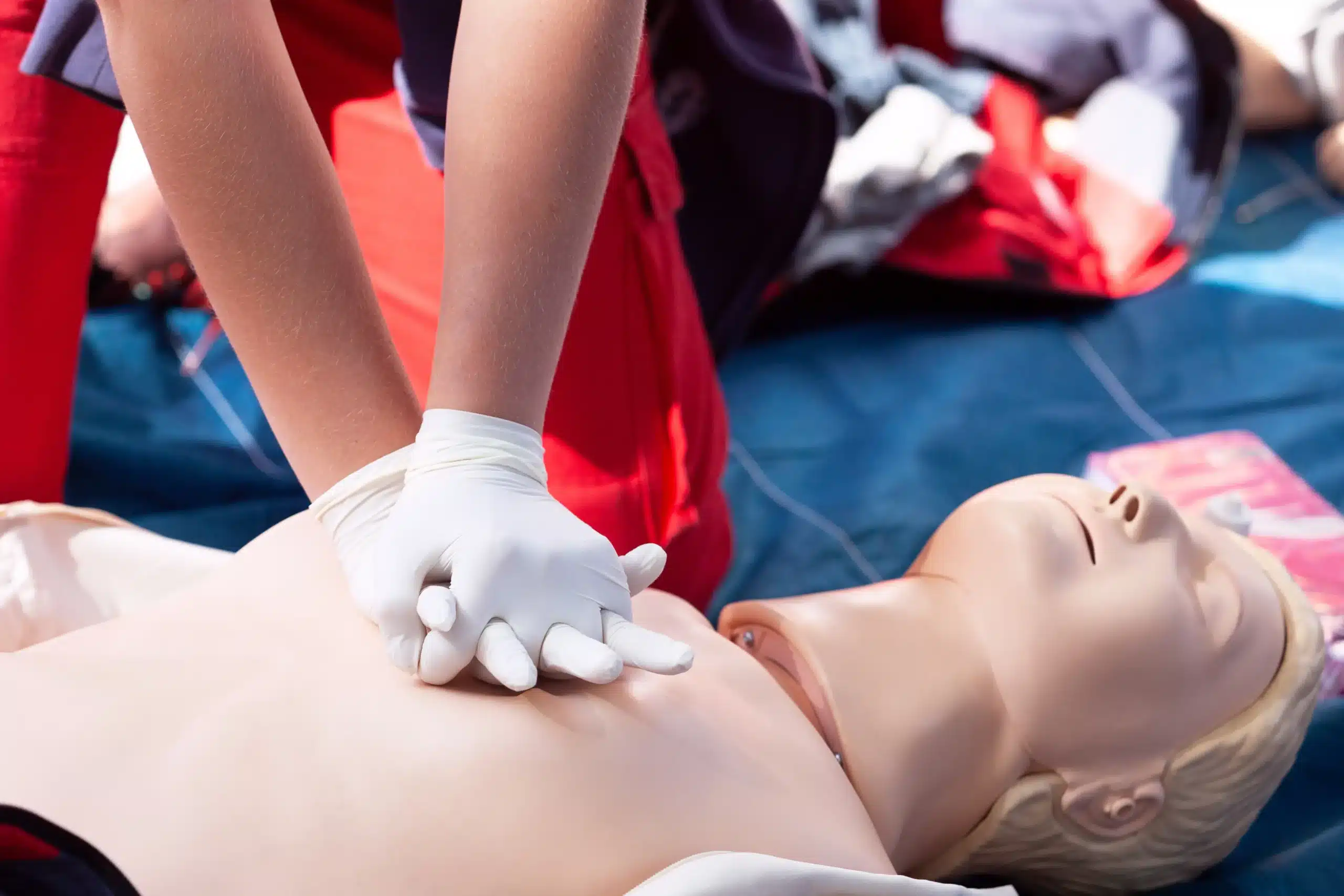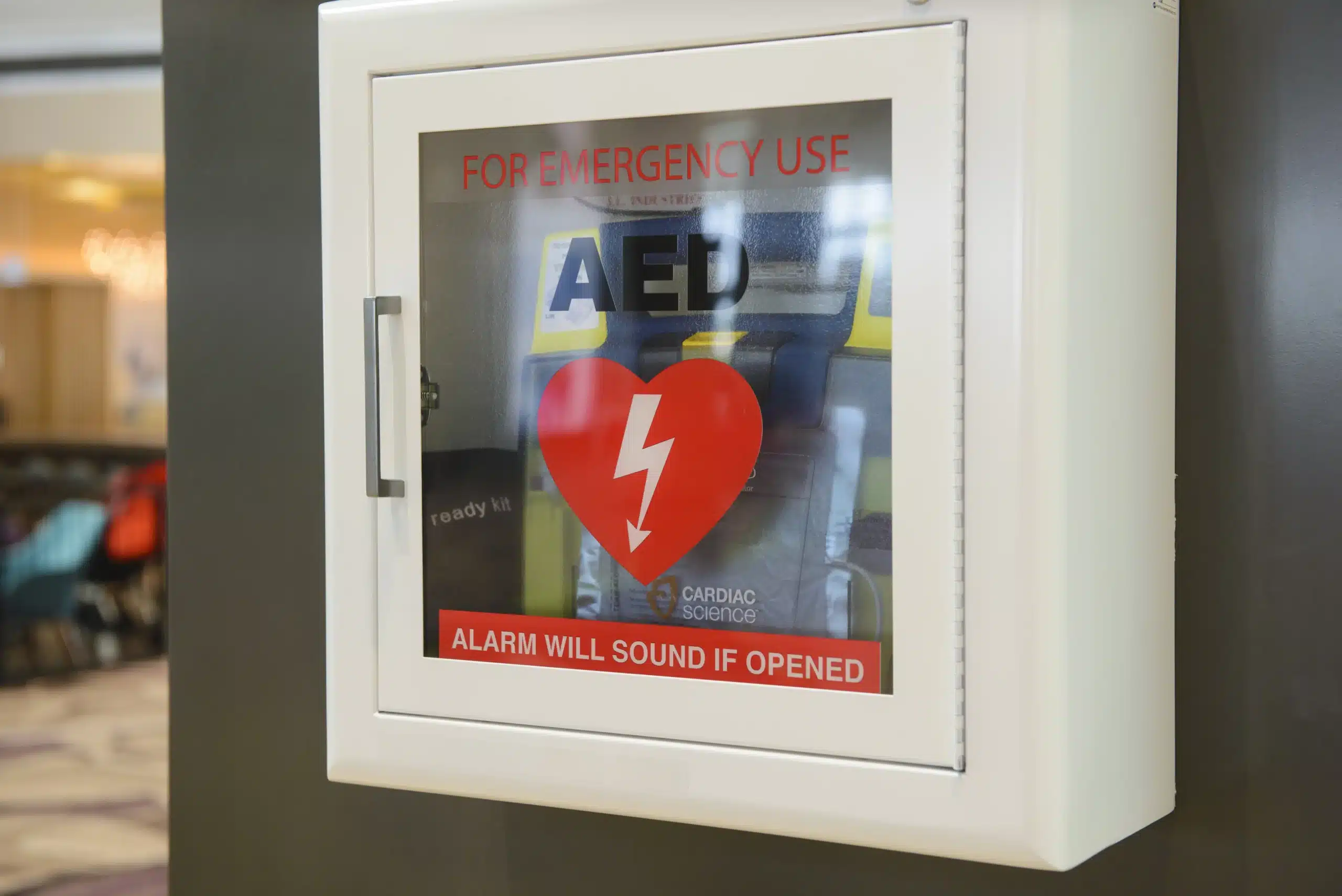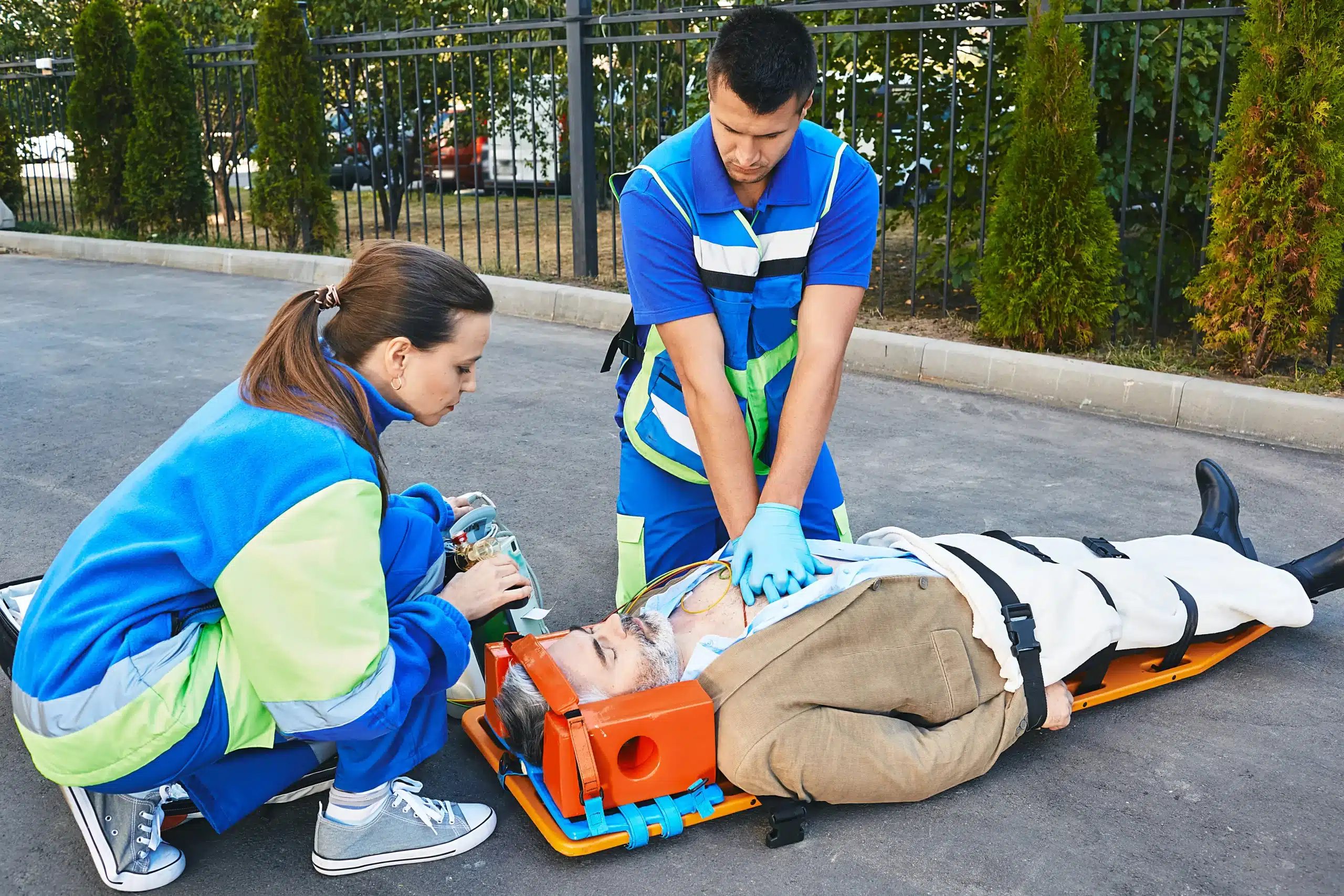Balancing a demanding healthcare career with continuing education can feel like a juggling act. You’re dedicated to providing the best care, but finding time for essential training like PALS (Pediatric Advanced Life Support) can be a real struggle. If you’re searching for a flexible, convenient way to get PALS certified, online PALS classes in San Mateo might be the perfect solution. This article breaks down the benefits of online PALS training, including how it fits into your busy schedule and helps you master the skills needed to handle pediatric emergencies. We’ll cover reputable course providers in San Mateo, what to expect during training, and how to maximize your investment in your professional development.
Key Takeaways
- Online PALS training fits your busy schedule: Learn at your own pace and choose from various course formats, including blended learning, to balance work, family, and continuing education.
- PALS equips you with essential pediatric skills: Gain confidence in managing pediatric emergencies, from assessment and respiratory issues to vascular access and airway management. This specialized training prepares you to provide high-quality care in critical situations.
- Make the most of your PALS certification: Select a course that suits your learning style, overcome online learning challenges with practical strategies, and seek out additional resources to enhance and maintain your skills. Your ongoing commitment to learning ensures you can provide the best possible care.
What is PALS Certification?
What is PALS?
Pediatric Advanced Life Support (PALS) training prepares healthcare providers to respond effectively to emergencies involving infants and children. This specialized training goes beyond basic life support, giving providers the skills to manage respiratory and cardiac arrest, recognize shock, and administer medications in pediatric emergencies. PALS certification shows a provider’s dedication to providing high-quality care for young patients.
Why Choose Online PALS Training?
Online PALS courses offer a flexible and convenient path to certification. The American Heart Association (AHA) offers comprehensive online PALS courses designed to equip healthcare providers with essential skills. These courses often include online materials, skills testing, and issue your PALS certification card upon completion. Self-paced learning lets you fit the training into your schedule, studying whenever and wherever it’s most convenient. This format is especially helpful for those balancing demanding work schedules and personal commitments. Online PALS classes offer a practical solution for busy professionals.
Challenges in Pediatric Emergencies
One of the biggest challenges healthcare providers face is balancing demanding work schedules with the time commitment required for training. Finding time for study and practice can be difficult, but overcoming these challenges is crucial for those working in pediatric care. Thankfully, online PALS courses offer a solution, allowing providers to learn at their own pace and fit the training around their existing responsibilities. This accessibility makes it easier to stay current with the latest guidelines and maintain your certification. Overcoming these challenges is key for healthcare providers working with children.
Top Online PALS Class Providers in San Mateo
Finding the right PALS certification course can feel overwhelming, so we’ve compiled a list of reputable providers offering online and hybrid options in San Mateo. This list includes providers with various course formats, price points, and schedules to help you find the perfect fit.
Safety Training Seminars
Safety Training Seminars offers a range of American Heart Association certified courses, including PALS. They shine by providing flexible options for both individuals and groups, including on-site training. This makes coordinating training convenient for organizations in San Mateo, Daly City, and Millbrae. Learn more on their PALS course page.
ACLS Certification California
ACLS Certification California focuses on online PALS, ACLS, and BLS certification courses specifically designed for San Mateo County. Their 100% online format follows the latest AHA and ECC/ILCOR guidelines, ensuring nationally and internationally recognized training. Explore their online PALS offerings.
eMedCert
eMedCert offers a convenient online platform for PALS certification and recertification, geared towards busy healthcare professionals. Their self-paced courses are accessible from any device, allowing you to complete training on your own schedule. Learn more about their PALS certification.
ProMed Certifications
ProMed Certifications provides a comprehensive PALS certification program with various learning options. Their website offers clear pricing and scheduling information, simplifying the process of finding the right course. Visit ProMed Certifications to see their program details.
In-Home CPR
In-Home CPR specializes in delivering PALS training directly to your home or workplace in the San Francisco Bay Area and Sacramento. They offer initial and renewal courses, plus a blended learning option combining online and in-person instruction. See their PALS class details.
SureFire CPR
SureFire CPR offers American Heart Association (AHA) PALS certification courses covering essential pediatric emergency topics like assessment, respiratory emergencies, and airway management. Their training equips healthcare providers with the skills to respond effectively. Explore their PALS certification information.
Course Details and Requirements
This section covers what to expect during your PALS training, from the topics covered to the technology you’ll need. Understanding these details will help you prepare and choose the right course.
Duration and Structure
PALS courses blend online learning with in-person skills practice and testing. The online portion lets you learn at your own pace, covering essential concepts and procedures. This flexible format makes it easier to fit the training into your schedule. While online modules may take one to four hours depending on the course (BLS is typically shorter at 1–2 hours, while ACLS and PALS courses often require 3–4 hours), the in-person skills check is much quicker, usually lasting 15–30 minutes. This blended learning approach combines online study with the hands-on experience needed for real-world scenarios.
Key Topics Covered
PALS courses cover a range of critical topics to equip you with the skills to handle pediatric emergencies. You’ll learn about pediatric assessment, helping you quickly evaluate a child’s condition. The curriculum also covers respiratory emergencies, giving you the knowledge to manage breathing difficulties. You’ll receive training on vascular access, including intraosseous access, a technique for administering fluids and medications when traditional IV access is difficult. Airway management is another key component, teaching you how to maintain a clear airway. The course also reviews basic life support (BLS) skills, reinforces pharmacology principles, presents case studies, and emphasizes teamwork in emergencies.
Hands-On Skills Assessment
After completing the online modules, you’ll participate in a brief, in-person skills assessment. This session typically involves practicing and testing your skills using a voice-activated mannequin (VAM). While a live instructor isn’t physically present, support is available by phone. This approach allows for flexible scheduling and personalized attention. The skills check focuses on the practical application of the techniques you learned online, ensuring you’re confident in performing them.
Technology Requirements
For the online portion of the PALS course, you’ll need a device with a reliable internet connection. A laptop, desktop computer, or tablet with a keyboard is recommended for completing online assignments. A stable internet connection is essential. If your home internet is unreliable, consider using a public library or coffee shop with strong Wi-Fi. For more tips on overcoming online learning challenges, check out this helpful article on solutions for online students.
Costs and Payment Options
Understanding the costs associated with PALS certification, both initially and for renewals, helps you budget effectively. This section breaks down typical expenses and explores available discounts and payment methods.
Initial Certification vs. Renewal Costs
Initial PALS certification typically costs around $225, while renewal is generally around $150. This tiered pricing makes maintaining your certification over time more affordable. Remember that prices can vary slightly depending on the provider. Checking with specific training centers like Safety Training Seminars for their most up-to-date pricing is always recommended. Knowing the difference between initial and renewal costs lets you plan and maintain your PALS qualification without unexpected expenses.
Discounts and Promotions
Many training providers offer discounts to make PALS certification more accessible. Some providers offer a 15% discount when using a specific promo code, like “California,” during checkout. Explore potential discounts before registering for a course. Check with individual providers or browse online resources like ACLS Certification California for current promotions. These offers can significantly reduce your training costs.
Accepted Payment Methods
Providers understand the need for flexible payment options and typically accept various methods, including cash, check, and credit card. This allows you to choose the payment method that works best for you. Confirm accepted payment methods with your chosen provider, such as Safety Training Seminars, before registering to ensure a smooth transaction.
Benefits of Online PALS Classes
Online PALS certification offers several advantages for busy healthcare professionals. Let’s explore some key benefits:
Flexibility and Convenience
Juggling work, family, and continuing education can be tough. Online PALS courses offer the flexibility to learn at your own pace, whenever and wherever it suits you. This eliminates the need to commute to a physical classroom and allows you to fit the training around your existing schedule. Online PALS courses equip healthcare providers with the skills to respond to pediatric emergencies.
Updated Curriculum and Resources
Pediatric Advanced Life Support guidelines are constantly evolving. Reputable online PALS courses ensure their curriculum and resources are up-to-date, reflecting the latest advancements in PALS guidelines. This means you’ll be learning the most current best practices for managing pediatric emergencies. This ensures you’re prepared for a variety of critical situations.
Immediate Certification
Upon successful completion of an online PALS course, you often receive your certification immediately as a printable and downloadable eCard. This allows you to quickly demonstrate your qualifications and get back to work. This streamlined process is a major plus for those needing certification quickly.
National and International Recognition
Many online PALS courses adhere to 2024 AHA and ECC/ILCOR guidelines, ensuring your certification is accepted nationally and internationally. This is particularly important for healthcare professionals who may relocate or work in different healthcare systems. This broad acceptance provides flexibility in your career.
Unlimited Practice Exams
Some online PALS courses offer unlimited practice exams and instant feedback, providing ample opportunity to reinforce your knowledge and test your understanding of the material. This can help build confidence before taking the final certification exam. The ability to retake exams as needed helps solidify learning.
Blended Learning Options
For those who prefer a combination of online learning and hands-on practice, some providers offer blended learning that combines online modules with in-person skills sessions. This approach allows you to benefit from the convenience of online learning while still gaining practical, hands-on experience. This can be a great option for those who learn best through a variety of methods.
Maximize Your PALS Certification
Getting your PALS certification is a significant step, but how can you truly maximize its value? These tips will help you make the most of your training and maintain your skills.
Choose the Right Course
First things first, select a PALS course that aligns with your learning style and schedule. Online PALS courses offer flexibility and convenience, allowing you to learn at your own pace. The American Heart Association (AHA) offers comprehensive online PALS resources designed to equip healthcare providers with the skills to respond to pediatric emergencies. Consider whether a blended learning format—combining online modules with in-person skills sessions—might be a good fit. Our San Mateo location offers several options, so you can find the right balance.
Overcome Common Challenges
Online learning isn’t without its hurdles. One common challenge is staying focused and motivated in a self-directed environment. Create a dedicated study space free from distractions. Technical difficulties can also disrupt your learning. A reliable internet connection is essential. If your home wifi is unreliable, consider public spaces with stable internet access, such as a local library or coffee shop.
Additional Resources for Skill Enhancement
Don’t stop learning once you’ve earned your certification. Look for opportunities to enhance your skills. Many providers offer refresher courses or advanced workshops. Consider joining online forums or communities of practice to connect with other PALS-certified professionals and share experiences. Constructive feedback is invaluable. Don’t hesitate to ask instructors for personalized advice.
Implement PALS Training in Real-Life Scenarios
While classroom learning provides a strong foundation, applying your PALS training in real-life scenarios is crucial. Seek out opportunities to practice your skills in simulated environments or during clinical rotations. If your workplace offers mock codes or emergency drills, actively participate to reinforce your training. PALS training can help improve patient outcomes, ensuring that healthcare providers are prepared with the latest, evidence-based techniques.
Certification and Renewal Procedures
Maintaining your PALS certification demonstrates your ongoing commitment to providing high-quality care. Familiarize yourself with the renewal requirements and complete the necessary continuing education activities before your certification expires. PALS certification classes emphasize simulations and real-life scenarios to help providers develop the confidence to apply pediatric-specific skills in real-world emergencies. Staying current with the latest guidelines and best practices will help you provide the best possible care.
Related Articles
- PALS HeartCode in Daly City: Your Complete Guide – San Mateo CPR Classes
- HeartCode PALS San Mateo: Your Guide to Certification – San Mateo CPR Classes
- Online PALS Classes in Daly City: Your Guide – San Mateo CPR Classes
- AHA PALS Classes in San Mateo, CA – San Mateo CPR Classes
- NRP Certification in Daly City: Your Guide – San Mateo CPR Classes
Frequently Asked Questions
What is the difference between PALS and BLS? BLS, or Basic Life Support, teaches fundamental life-saving skills applicable to anyone, while PALS (Pediatric Advanced Life Support) builds upon those basics with specialized techniques for infants and children. PALS focuses on the specific physiological differences and unique needs of young patients in emergency situations. It delves deeper into advanced airway management, rhythm recognition, and medication administration tailored to pediatric care.
How long does a PALS certification last? PALS certification is typically valid for two years. To maintain your credentials, you’ll need to complete a recertification course before the expiration date. Recertification ensures your skills and knowledge remain current with the latest guidelines.
What if I don’t work in a hospital setting? Do I still need PALS? While PALS is often associated with hospital settings, it’s valuable for any healthcare professional regularly interacting with children. This includes professionals in clinics, schools, or even those working in specialized pediatric transport. If your role involves the potential for pediatric emergencies, PALS equips you with the skills to respond effectively.
Are online PALS courses as good as in-person classes? Yes, online PALS courses offer the same high-quality instruction as traditional classroom settings. Reputable online programs adhere to the same rigorous standards and cover the same comprehensive curriculum. The key difference lies in the flexibility and convenience of online learning, allowing you to study at your own pace and around your schedule. The hands-on skills assessment, while conducted in person, is often streamlined and efficient.
How can I find a PALS course near me? Several reputable organizations offer PALS certification courses, both online and in person. A quick online search for “PALS courses near me” will yield local providers. You can also check with professional organizations or your employer for recommendations. When choosing a provider, ensure they are accredited and follow the latest guidelines.






